Jun 18th 2021
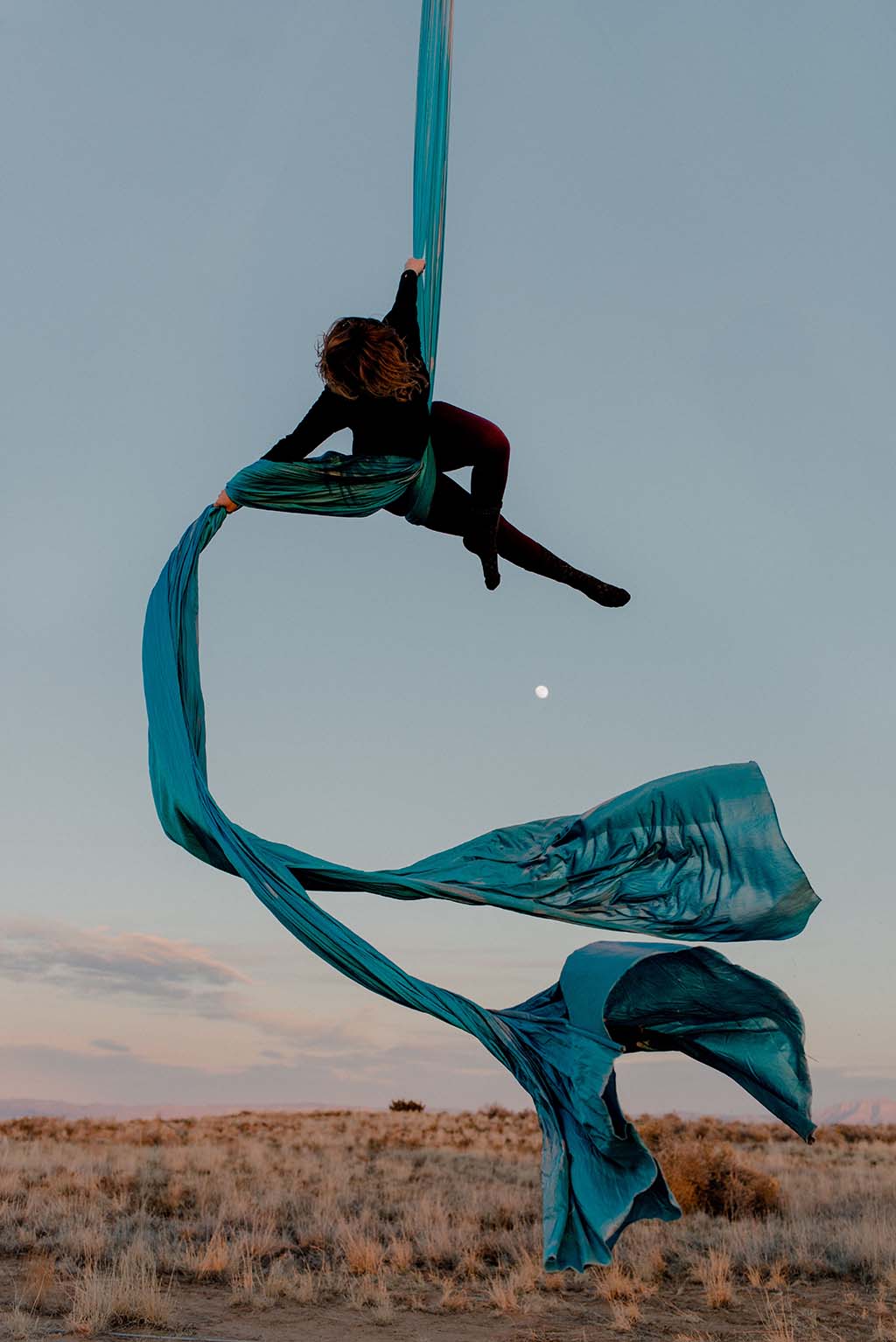
Where do you look for inspiration?
I love to look at anything but photography for inspiration. I never want to consciously or subconsciously copy another photographer’s work so instead I look mainly to whatever I am curious about. I try new things in my life all the time out of boredom and so will find inspiration in new hobbies, new environments, new jobs, new people.
Right now, I feel really inspired by emptiness whether in literal space whether literal or figurative.It’s drawn me to want to shoot more in places that are blank environments so whatever is put into that environment influences what it becomes, how it looks. A blank environment requires focus on the subject and leans less on the natural, easy beauty of an epic landscape. I also moved to New Mexico this year and am so influenced by the desert and how it’s so full of life that is thriving in unique ways.
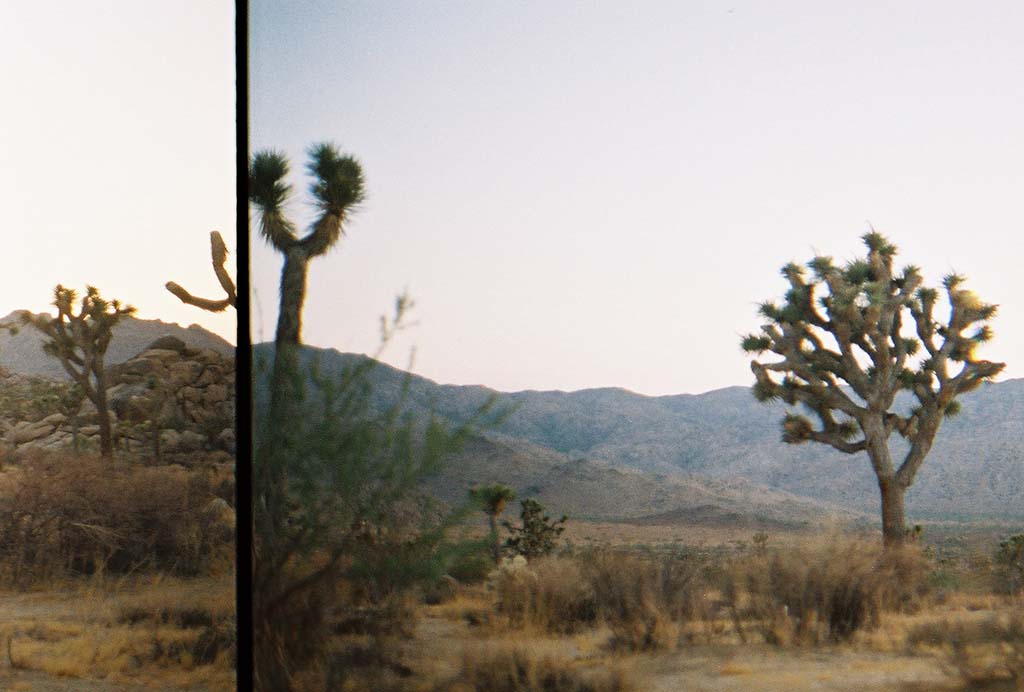
What type of cameras and lenses do you use?
I am both a film and digital photographer so my film baby is a Rolleiflex 3.5f Zeiss Planar and my digital is a Nikon d800 (I still feel weird about mirrorless, anyone else?) and the only lenses I really use are my 35mm and 85mm, sometimes a 50mm. I believe strongly in gear minimalism
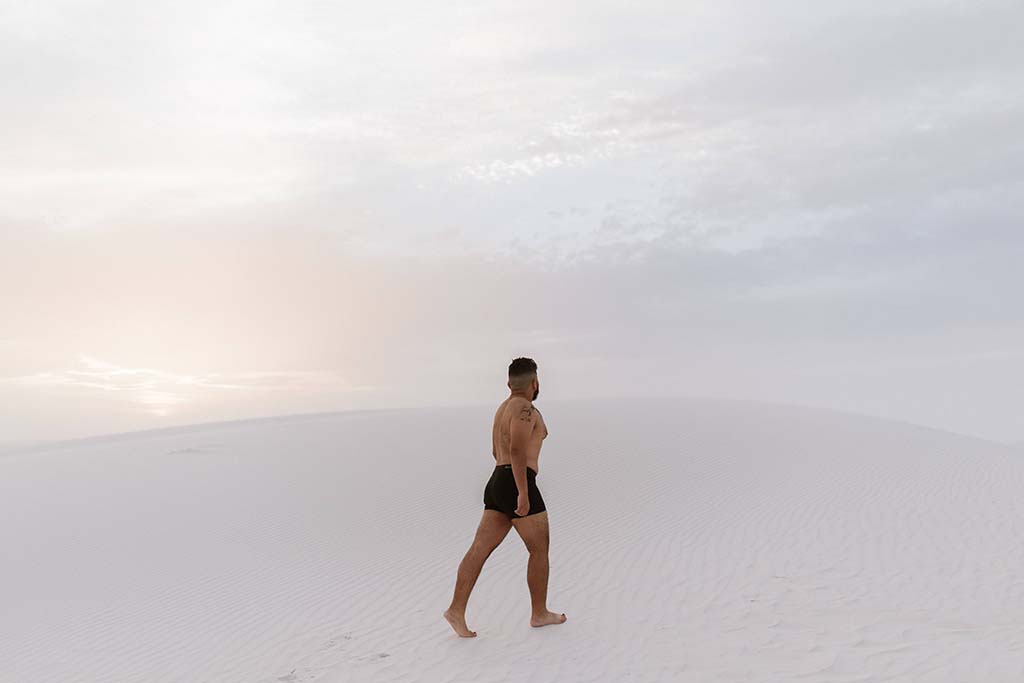
What subject draws you to take a photo of it?
I am historically very drawn to photos of people in nature. I didn’t spend much time outside when I was young and my family never traveled so being an adult, I feel like a wide-eyed kiddo excited about all the beautiful places. Lately, I’ve felt really moved to explore more simplistic/minimalistic settings and play with shadows and harsh light and focus more on the subject.
The people I’m drawn to shooting are all queer people. I feel so much more inspired and comfortable around other queer folks and am always so stoked on those shoots. Also people who are artists, makers or considered “weird” by *ahem, “society”.
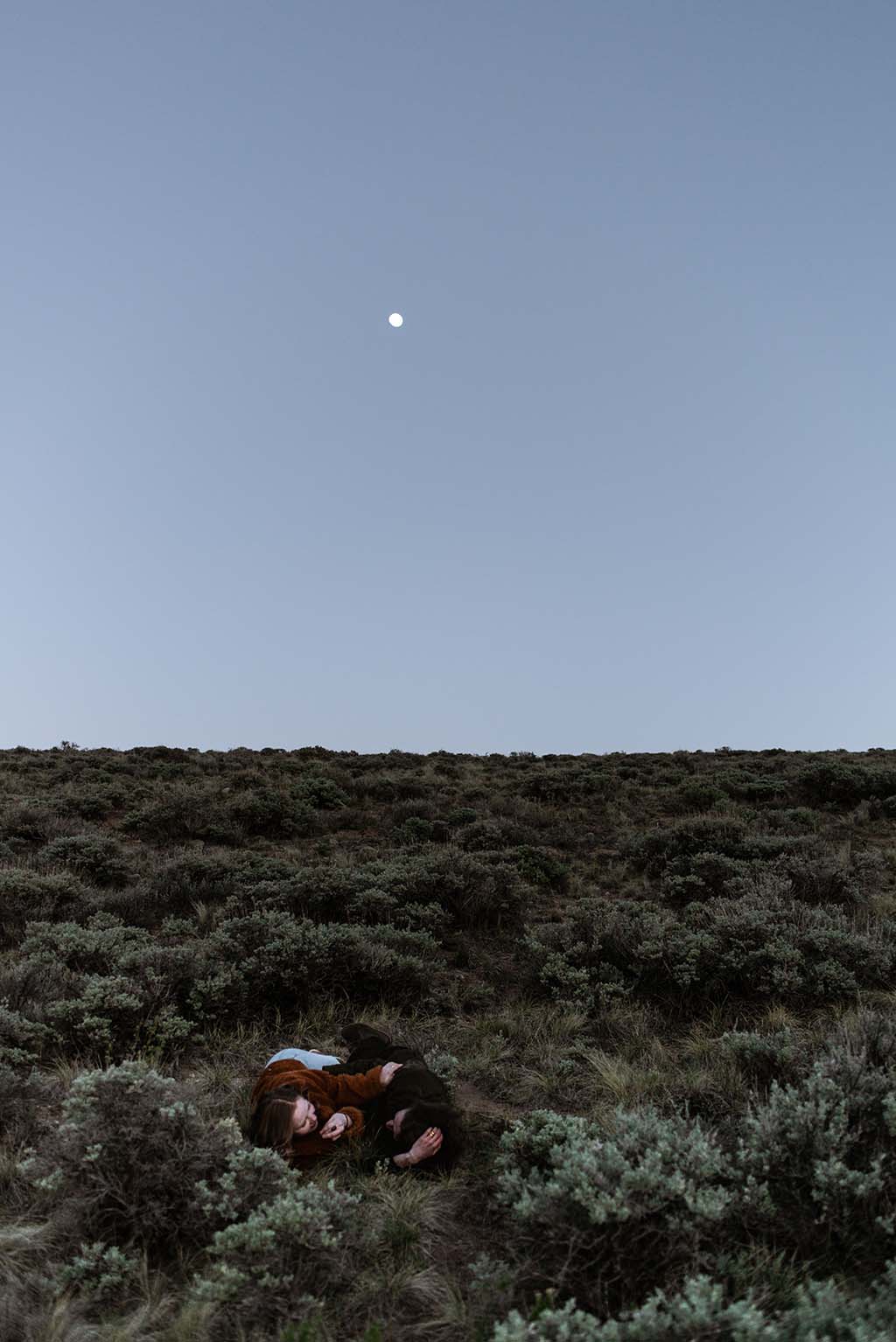
Can you share some tips on how you shoot your images?
I have spent a long time trying to find my style of photography and feel like it’s forever evolving. Once I stopped trying to control the environment and started really looking at the light, the colors and feeling the energy of the place and the people, I realized that should be what dictates how I shoot. I try to put my ego aside and realize it’s not about me or what I want, it’s about the people in the photos and what they’re bringing energetically and meeting them there and being happy to do so.
Another thing I think about a lot when composing images is either having the subject blend into the environment or having them deeply contrast or clash, and I find that defining these paradigms for interaction between a subject and environment helps me work with a subject so that we can effectively collaborate and experiment.
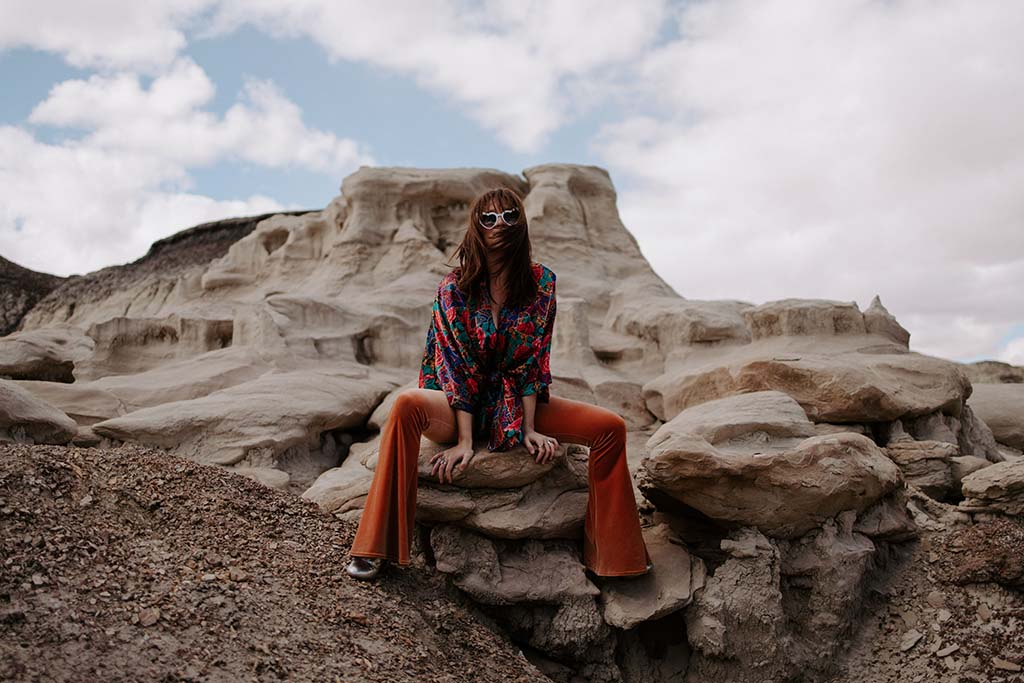
What has been your biggest challenge in pursuing a career in photography?
My biggest challenge has been trusting myself to make it. I struggled for so long to even call myself a photographer - so much imposter syndrome and self doubt. I’m scared of both success and failure for myself. But after the pandemic and a personal decision to not work for men anymore indefinitely, I’m ready to take on the responsibility of making it happen for myself. I think that’s the thing - it’s all on you and that’s terrifying. So much of my trauma is around not being good enough so I think wading through that and learning of my own capability has helped me push to a point of trying - really, truly trying.
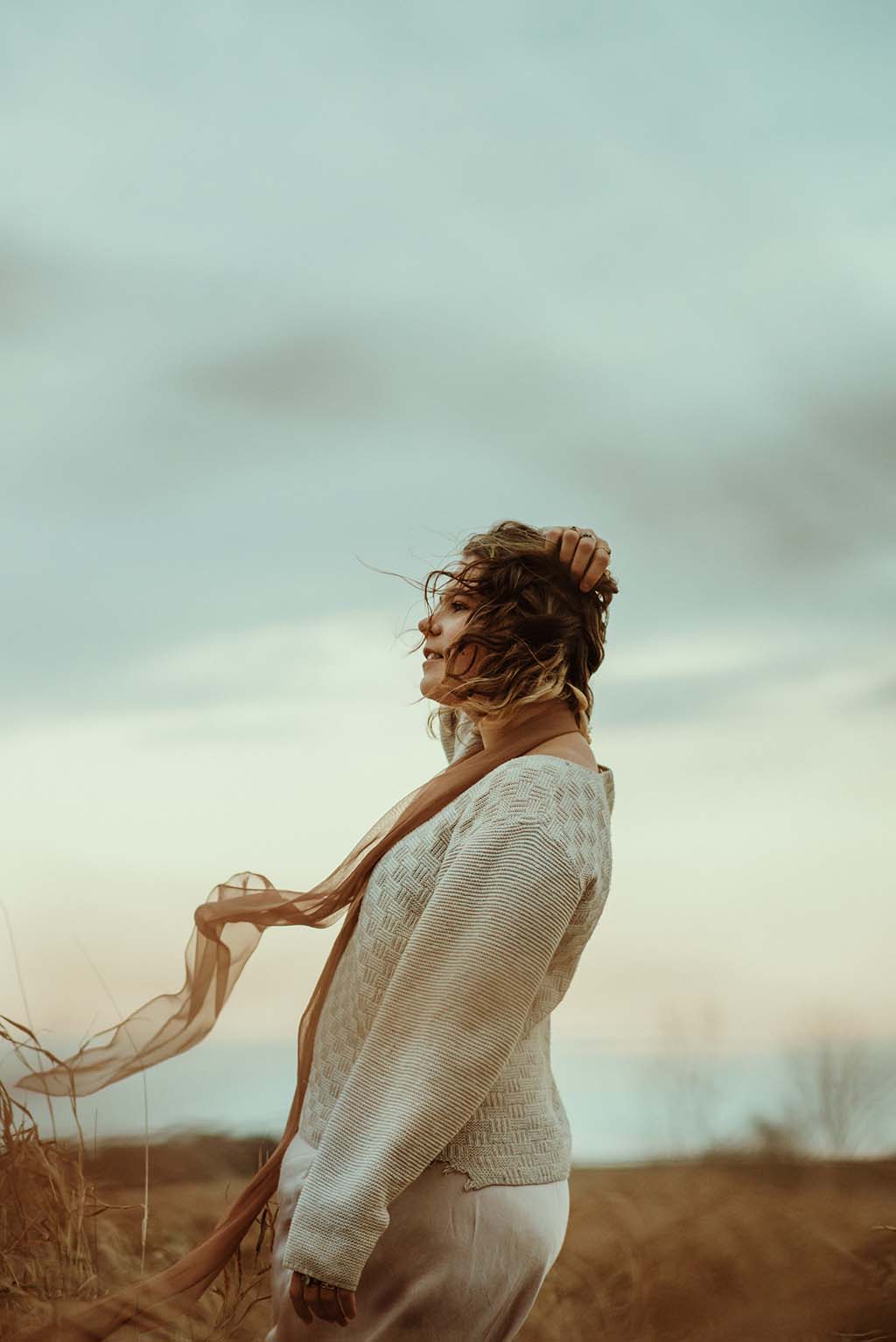
What advice would you give to someone starting a career in photography?
Stop looking at everyone else’s work!!! Actually!! Instead, get to know yourself. Go to therapy. Work through your trauma. Use your lived experience and what you know of yourself to make your art and allow it to influence how and who you shoot because it will be sustainable for you. People on some level can feel this, they’re attracted to your work when it’s you. In the world of photography, you are on some level your business. People are hiring YOU. And if you don’t know who you are and therefore what that niche subject matter, style, etc. is for yourself, it’s a good sign to look at that more and be curious about yourself and your specific interests.
The other side of this is to think about your community. Who is your community and what are you doing for them in your art? How are you contributing? If you’re not, how can you? I think answering those questions can take you down really specific paths. And if you allow yourself the grace to fail at it over and over again, you’ll find your fit and your people and get to keep evolving as both a person and a business.




